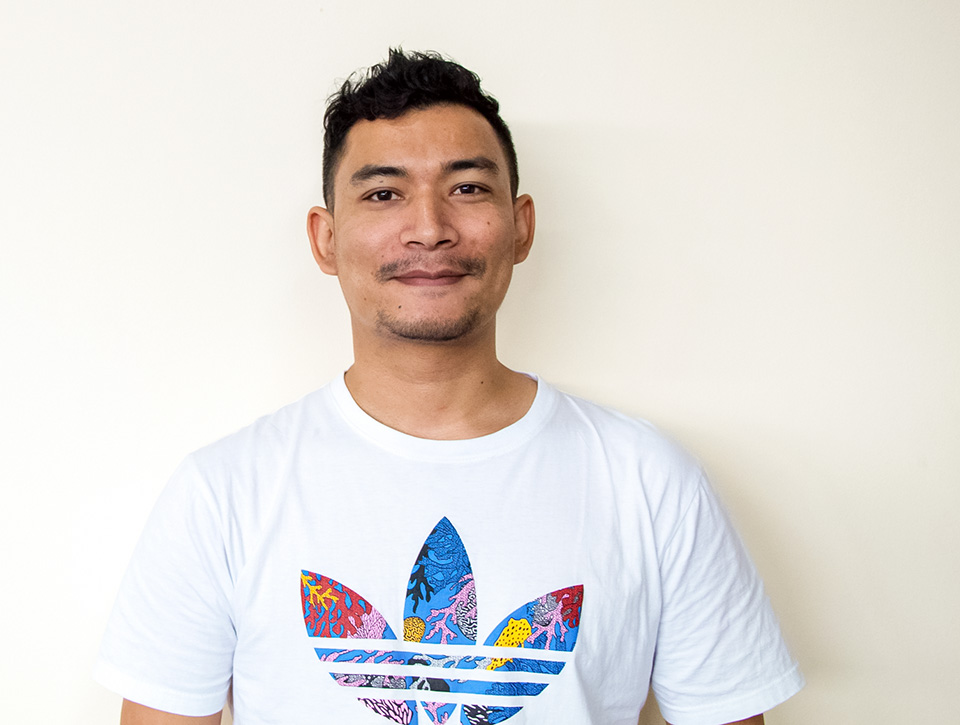Take five: “If we have policies and services but no one knows about them, it’s useless”
Date:
Author: Chris Dickson

Sangeet Kayastha is the regional coordinator for Y-PEER Asia Pacific Center. In February 2019, he attended the Regional Civil Society Strategizing Workshop in Bangkok for the 63rd Session of the Commission on the Status of Women (CSW) and Beijing+25 Review. This year’s CSW is focused on social protection systems, access to public services and sustainable infrastructure. Y-PEER is a peer-based network for youth education on sexual and reproductive health and rights, active across Asia from Afghanistan to Kiribati. His comments have been edited for clarity and concision.
What is the mission of your organization?
We are one of the oldest organizations in the region – established in 1999 – working with peer educators, sharing key messages on sexual and reproductive health and rights with young people one-on-one as well as in group settings. And there is also some advocacy of course, involving national-level delegations and so on.
In Nepal, there is a basic curriculum in schools teaching about HIV/AIDS and SRHR [sexual and reproductive health and rights], but it is all based on fear. The teacher says, ‘if you don’t know this, you can get infected, or you can get pregnant.’ This approaching is not raising awareness, it’s starting with fear. We need to change this more to providing information, including on what to do if you actually do get pregnant, which can be a big problem for unmarried women.
Why is education so important?
Firstly, it is important to start in schools. If I do not learn about these things when I am young, by the time I am 30, I will have three decades of experience of neglecting the rights of women and girls, or of not knowing about SRHR.
Also, even in schools it is important to start young. Enrolment in Nepal is 94 per cent, but drop-out rates are high. If you want to reach more children, you need to get involved in the early years. And if children know about gender issues, then they will start developing new perspectives from a young age, when it is very easy to change mindsets and educate about these issues.
It is more difficult to educate older people on new ideas, but this is still currently where many training efforts are focused, on government workers, or NGO staff, or even youth advocates in their 20s.
What about government outreach?
Yes, the other important thing about education is so that people know what is available. If we have policies and services and no one knows about them, it’s useless. Nepal has some good examples of policies and associated services, but no one is going to read through them on paper or online to know what is on offer. The communication needs to be done another way. At the moment, for example, if someone is harassing me, then I know that it’s wrong, but I don’t know what I can do about it or where to complain.
What would you like to see in particular coming out of this year’s CSW?
Social benefits must be accessible for everyone. For me, with regards to social protection, I would like to see more attention paid to the needs of unmarried women of all ages. In particular they are vulnerable in terms of their access to financial services. A lot of the discussion at national level is about the financial needs of married women, and hardly every about unmarried women.
In Nepal, for example, younger unmarried women have a very low chance of getting into the groups that receive microfinance crediting. The banks are worried that the girl or lady might marry and move to the husband’s community, which is the tradition in many South Asian cultures.
What are the benefits of attending such an international forum?
As NGOs or youth representatives, we do not have such a loud voice among the governmental delegations in New York. But it is good for us to negotiate with some of the governments. Some are more supportive than others, of course, but for example Australia and Nepal are really pushing for our agenda in their meetings. And if the right recommendations are then adopted, then this makes it easier for Y-PEER to then deal with other governments and move forwards.
On a personal level, it is interesting for me to attend CSW as a male participant. I studied and worked with gender before in many settings where men were in the minority. But here [at the Civil Society Strategizing Workshop] I am the only male, which has been a new experience for me.